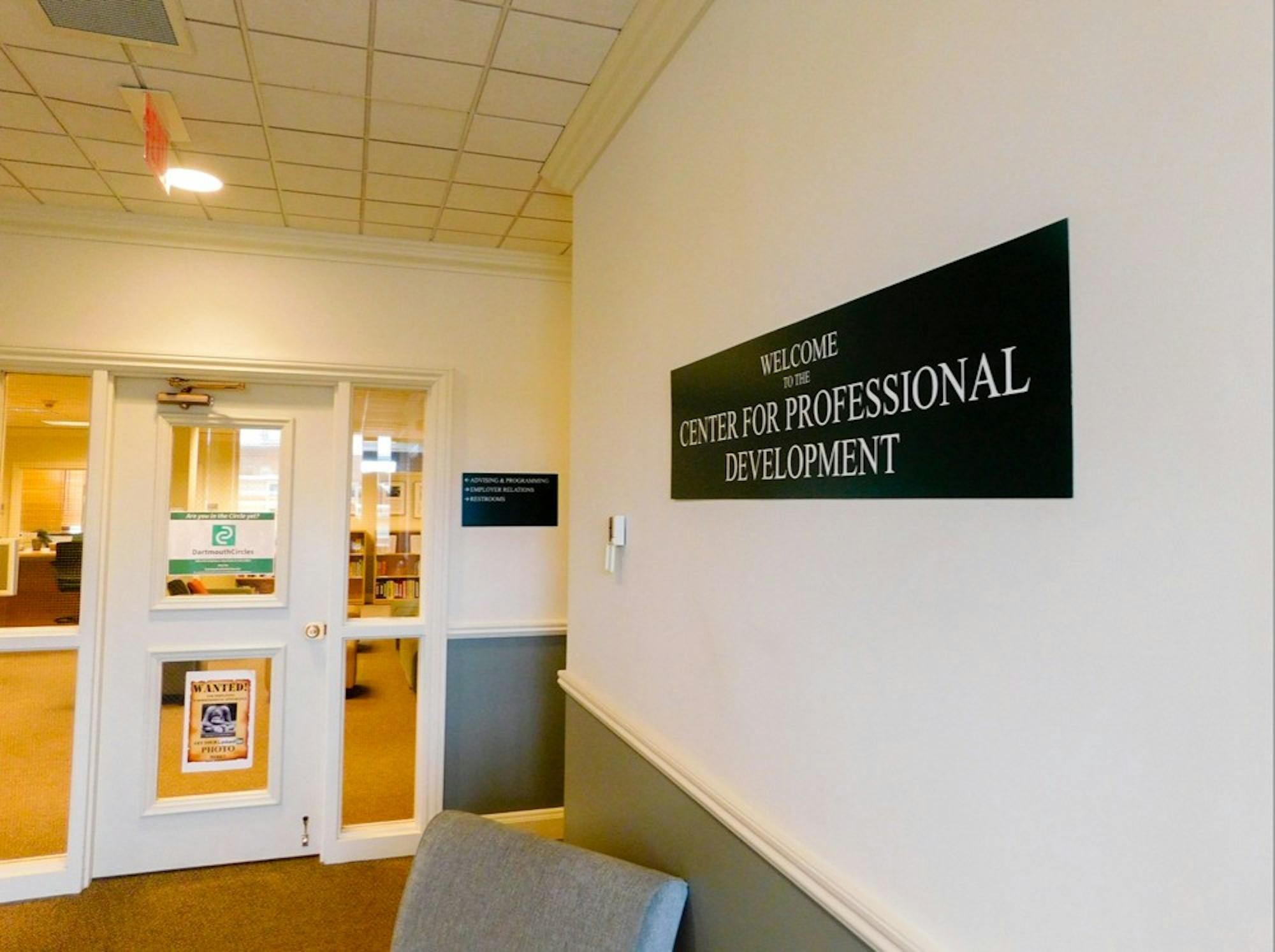The Center for Professional Development did not offer funding for spring internships through its Student Experiential Learning Fund, according to a post on the CPD’s website that has since been removed.
SELF money can be granted to any student whose project fits the payment criteria and aligns with their academic interests. CPD interim director Monica Wilson wrote in an email to The Dartmouth that supporting the fund is a “capital campaign priority,” and that the CPD is working to find additional sources of funding.
“Schools across the country are grappling with the challenge of having enough funding to support students with unpaid and low-paid internships,” Wilson wrote.
Wilson did not provide information about the long-term future of the fund.
While Dartmouth’s unique quarter system allows students to pursue internships during less competitive hiring periods, off-campus housing and food in the areas where these internships are typically located can often be prohibitively expensive, especially for unpaid or underpaid internships. While several organizations on campus — the Rockefeller Center for Public Policy, the John Sloan Dickey Center for International Understanding, the Center for Social Impact, the Center for Professional Development and others — can provide funding for students planning off terms, that funding can be limited and hard to get.
“Internship funding is really challenging,” said Center for Social Impact director Tracy Dustin-Eichler. “We are constantly working to figure out ways that we can accept more students [and] accept funding … our group is working really hard, and always thinking about how we can increase those resources so that we can support more students. Because it’s definitely a limited resource.”
Much of the money that comprises the Center for Social Impact’s stipends comes from donations, either via class sponsorships or individual alumni gifts, which are not guaranteed from year to year, according to Dustin-Eichler. The Center for Social Impact also derives money from an endowed fund, which ensures some level of certainty that funding will exist.
Each center is also limited by the types of projects for which it can grant funding. While in all cases funding can only go to students in unpaid or low-paid internships, the Rockefeller Center generally grants funding to public policy or nonprofit internships, the Dickey Center generally grants funding to students with internships with an international focus and the Center for Social Impact generally funds experiences at nonprofit community service organizations.
Despite the competition for funding, program officer for co-curricular programs at the Rockefeller Center Eric Janisch said he was surprised at the idea that it is hard to find funding, and said that the Rockefeller Center did not dispense all of its internship funds last year.
“I had leftover funding because we’ve been awarding it and students either … choose to do a private internship or don’t get a security clearance or don’t get accepted,” Jansich said. He also said that the number of applications submitted for Rockefeller Center funds have decreased over the past year.
In most cases, though, centers are more selective in determining which applications will get funded. While students can usually indicate on their applications if they will be unable to pursue their internship without funding, decisions about funding are usually made based on holistic considerations, rather than empirical need.
“We don’t pick students because we think they can or cannot afford the particular internship,” Dustin-Eichler said. “It’s not based on financial aid, but it’s really, ‘Is this the right learning opportunity for that student at that time?’”
While this decision-making mechanism may allow centers to fund certain student opportunities, it can disproportionately affect students who need funding in order to pursue internships.
Mackenzie Stumpf ’21 applied for a $5,000 grant — the maximum amount possible — from the Center for Social Impact because she and her parents were unable to cover the cost of her off term. After several meetings, Stumpf was told by a Center for Social Impact staff member that the funding application process is “inherently comparative” and was not awarded the funds that she applied for.
Although Stumpf applied for a $5,000 grant, she said that even $1,500 would have made it more possible for her to fund her off term. Stumpf believes that if the funding centers gave smaller amounts of money to more students, they would make a greater impact on the community than by giving fewer students the full amount they request.
“The funding process was difficult and frustrating for me because the whole ‘Do something with your off term’ is so pushed by Dartmouth that you feel like you waste your degree and experience if you don’t do something productive — so why isn’t funding more common or more evenly spread?” Stumpf wrote in an email to The Dartmouth. “[I] was let down, sadly.”

Lauren ('23) is news executive editor for The Dartmouth. She is from Bethesda, Maryland, and plans to major in government and minor in public policy.


